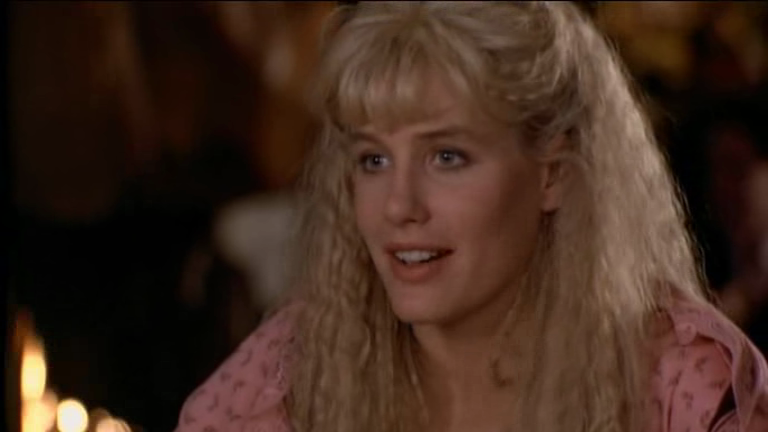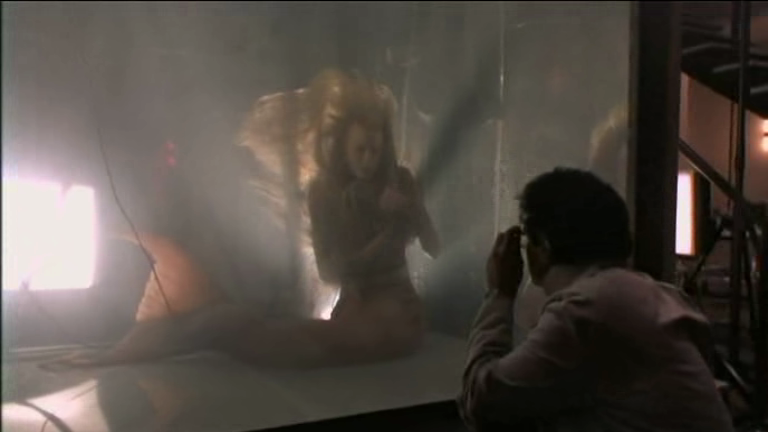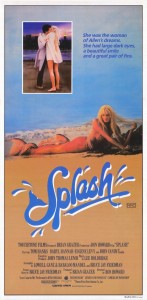|
Genres, Themes, Actors, and Directors:
- Fantasy
- Mermaids
- Romantic Comedy
Review:
I’ve now seen three of the four “mermaid films”* listed in Peary’s GFTFF — Mr. Peabody and the Mermaid (1948), The Mermaids of Tiburon (1962), and this blockbuster romantic fantasy, directed by Ron Howard — and have come to the conclusion that this limited “subgenre” is almost exclusively concerned with fulfilling male fantasies. In each film listed above, mermaids function primarily as exotically alluring sexual creatures who demand little of their partner; in Splash, the modern “twist” is that Madison (Hannah) is apparently bright enough to teach herself English after just a few short hours of watching television, but this is the extent of our understanding of who she is or what she wants out of life, other than to be a “perfect” (if quirky) companion for Hanks. [Disney’s 1989 animated version of The Little Mermaid raised the bar for mermaid flicks in terms of quality and creativity, but the storyline was still primarily centered on a mermaid desperately in love with a human male, struggling to choose between two worlds.] Hannah is appealingly natural in a tricky role (she’s well-cast), but Hanks’ character is a bit of a dullard, and his loud-mouthed brother (Candy) couldn’t be more obnoxious — I’m flummoxed by the consistently positive reviews he’s received for his role here.
Splash‘s script (co-written by four males) is, despite its Oscar-nominated status, both lazy and unsatisfying: What kind of world does Hannah come from? Why is she hanging around Cape Cod? Who are her family members, and why is Levy solely interested in capturing Hannah? Other logistical concerns abound as well — i.e., why Hannah has just six days to live as a human before deciding permanently between worlds, or why water instantly transforms her back into mermaid form — though these would feel less important if the film itself were more satisfying. The best scenes are those filmed underwater, but they’re too few in number, and fail to open up our understanding of Hannah’s normal existence. Meanwhile, countless lines and scenes are either juvenile (i.e., the running “joke” that Candy likes to drop things on the ground in order to look up women’s skirts) or offensive (a saleswoman helping Hannah casually remarks, “My daughter, on the other hand, is lucky — she’s anorexic.”). Feel free to skip this one unless you’re curious to check it out for its cult appeal.
* The fourth title is Night Tide (1961), which I haven’t yet seen, but I’ll report back…
Redeeming Qualities and Moments:
- Darryl Hannah as Madison

- Effective costume design/special effects

Must See?
No, though it’s worth a one-time look simply for its cultural relevancy. Listed as a Personal Recommendation in the back of Peary’s book.
Links:
|



One thought on “Splash (1984)”
In overall agreement with the assessment: male fantasy popcorn flick. Occasionally there’s an amusing bit but it mostly becomes tiresome (esp. Candy’s one-note, “free spirit” character). Skip it.